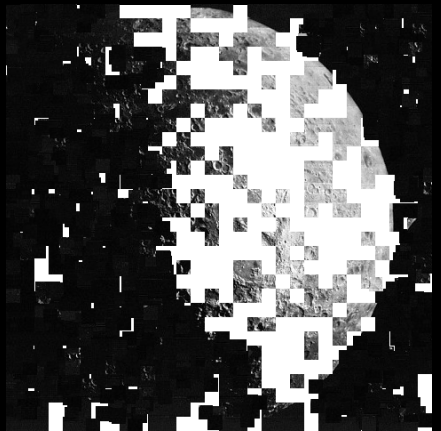
Cartography of Known Spaces
Loren Schmidt’s entry for NaNoGenMo 2015, this computer-generated art-book/novel explores three thematically linked approaches:

I think my favorite part is “forgetting the moon”: a step by step depiction of a machine literally forgetting what the moon looks like.
The use of failed or flawed processes as narrative is an underutilized thing. Computational design, and game design in particular, often involves creating a relationship between a process and a meaning (see Brenda Laurel’s Computers as Theater). But here, the message is explicitly created by the failures of the process.
The algorithm forgets because it is incapable of remembering: a very human failure. Sometimes, even a precious memory can be as forgotten as the face of the moon.
The use of a computational process as direct narrative also reminds me of thricedotted’s The Seeker. While very different novels, both of them use the inner thoughts of a machine as their structure.

The “unknown stars” are the reverse of forgetting. It’s remembering too much. It creates something new by finding patterns and making them real in a kind of Tlönianesque generation.
This, I feel, touches at a central idea of procedural generation: we can’t create something entirely new, something without a cause. But the generated things can take on a life of their own, making themselves more real. The act of cartography, of charting known spaces, becomes a creative act. A map is not the thing it depicts, but it is itself a new thing.
